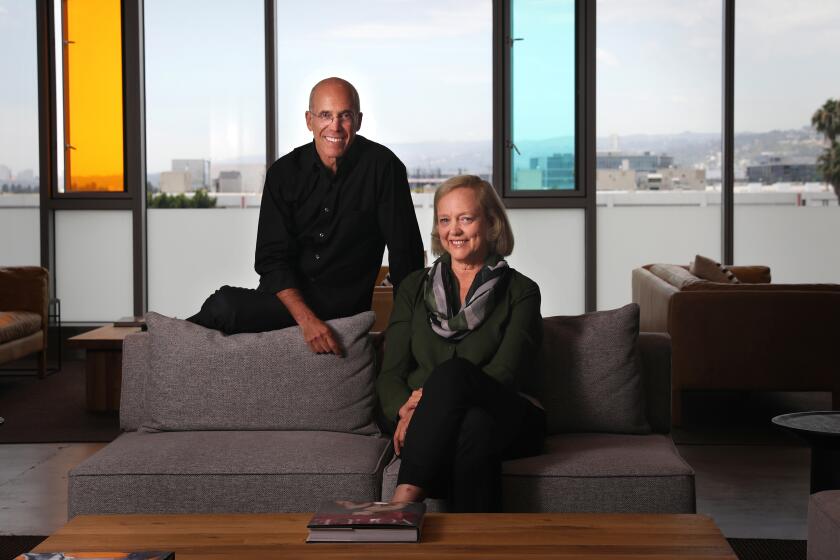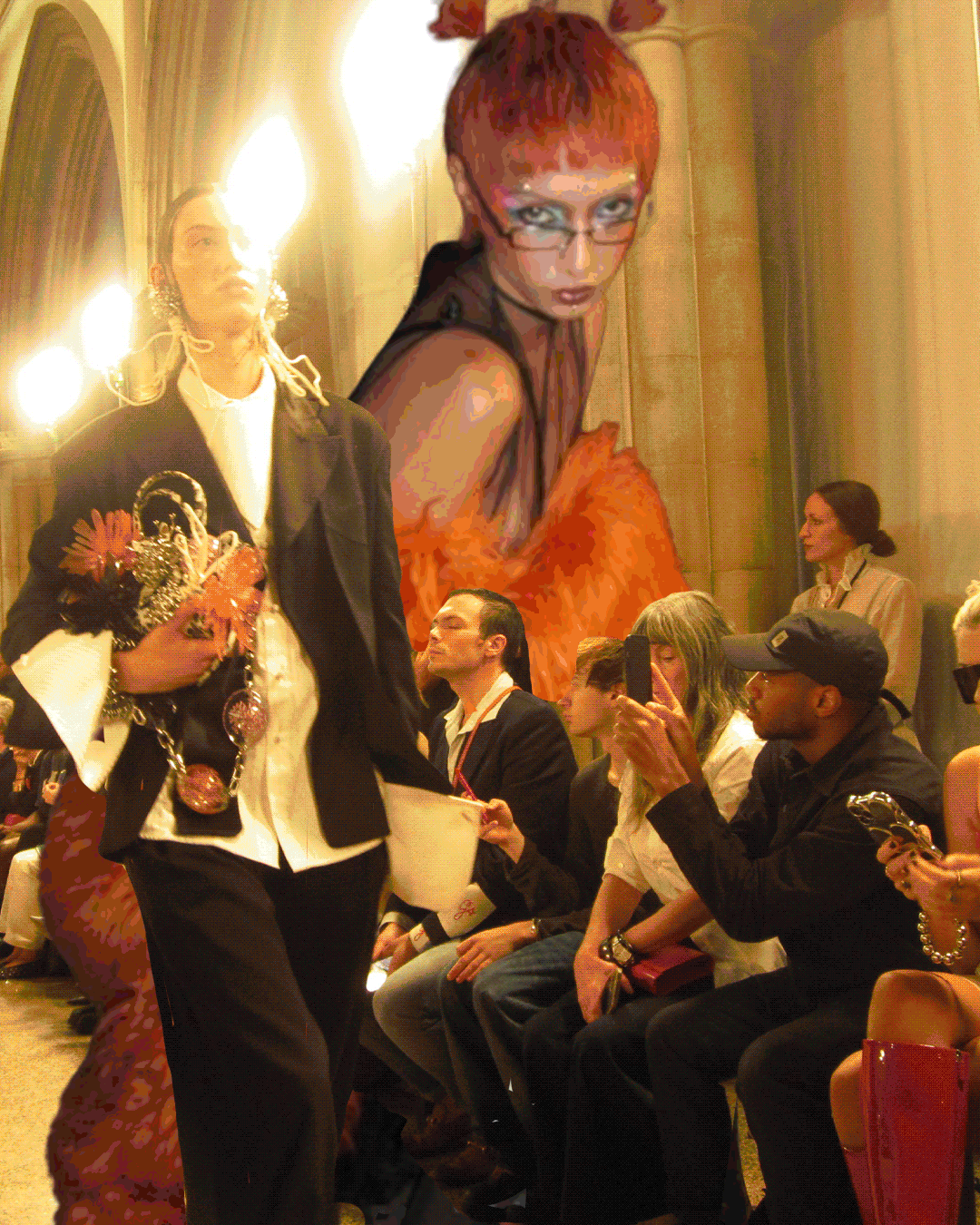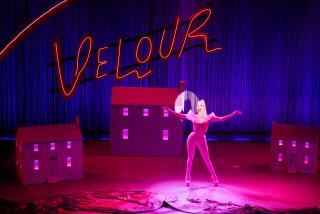As coronavirus snuffs out live shows, Quibi and Sasha Velour give drag fans a lifeline
For Sasha Velour, drag is a utopian practice: Its fantasy helps performers and onlookers alike see the world not as it is but as it could be. With Quibi’s “NightGowns With Sasha Velour,” which chronicles the live drag show the “RuPaul’s Drag Race” winner has been producing since 2015, Velour wants to put that fantasy in the palm of your hand.
“Queer art is always reflecting on a world that is sometimes unfriendly, that needs to be edited and changed and shifted in all these ways,” Velour says. “A lot of gay art has a balance of humor and heart in the face of despair, violence and death.”
Quibi is set to launch Monday -- amid the coronavirus lockdown.
In Velour’s case, the choice to pair her stylized feminine aesthetic with a bald head is an homage to and a celebration of her mother, who died of cancer a few years ago. Owning that image and deploying it in the celebratory space that “NightGowns” has fostered since it began as a monthly revue show in Brooklyn, is a way to broaden ideas about beauty, femininity and strength through the power of drag. Velour’s ambition has always been to push the boundaries of the art form: to get her audiences to understand its multifaceted possibilities.
Produced by the Documentary Group, “NightGowns” is a bite-size concert doc that’s as dazzling when capturing live performances as when profiling the show’s fabulous ensemble, which includes trans performer Sasha Colby and drag king K.James, as well as Miss Malice, Neon Calypso, Untitled Queen and self-described “drag enigma” Vander Von Odd. Much of that is owed to the work of music video director Sophie Muller. Her kinetic camerawork makes this queer “Fantasia” come alive, letting viewers experience these varied acts — including Velour’s velvety lip sync of Stevie Nicks’ “Edge of Seventeen” and Colby’s pink-hued take on Janet Jackson’s “When I Think of You” — in all their fabulousness.
“NightGowns” arrives at a moment when drag, a staple of bars, theaters, clubs and brunch spots all over, has been confined to the smallest of screens. The coronavirus outbreak has forced drag performers to improvise ways of maintaining their artistry — and, more crucially, their livelihood. Zoom meetings, Instagram livestreams, Facebook Live broadcasts and YouTube videos have become the places where drag lives now.
“It’s so good that drag is still finding a way to be a bright spot in people’s days even though we’ve lost all of our stages,” Velour says. “This was going to happen within drag anyways because we need a way to reach people who are not in cities. We need a way to reach people who can’t necessarily afford to come see a live show. Or who are not old enough to come. Making drag available to people who are in remote locations is crucial for the survival of queer people.”
Jeffrey Katzenberg and Meg Whitman run Quibi, a digital platform creating bite-size shows for millennials to watch on their smartphones.
In the absence of live performances across the U.S., the jaw-dropping production numbers that close out each episode of “NightGowns” feel all the more special. Right now it’s a vision that feels nostalgic and aspirational in equal measure — not just for what’s on stage but for the images of the clamoring crowds that are so central to what Velour always hoped her shows could be. The imagined utopia at the heart of her project has always been about both what happens on stage and what takes place across from it.
“I know that there are some people who are in the audience of this ‘NightGowns’show who are now back at their job working in hospitals,” Velour added. “And so I’m thinking about those people who are dressed up, in drag and on camera in this ‘NightGowns’ show. People like that need to be able to pick up their phone for a while and escape into something that gives them joy and gives them strength.”
More to Read
The complete guide to home viewing
Get Screen Gab for everything about the TV shows and streaming movies everyone’s talking about.
You may occasionally receive promotional content from the Los Angeles Times.







